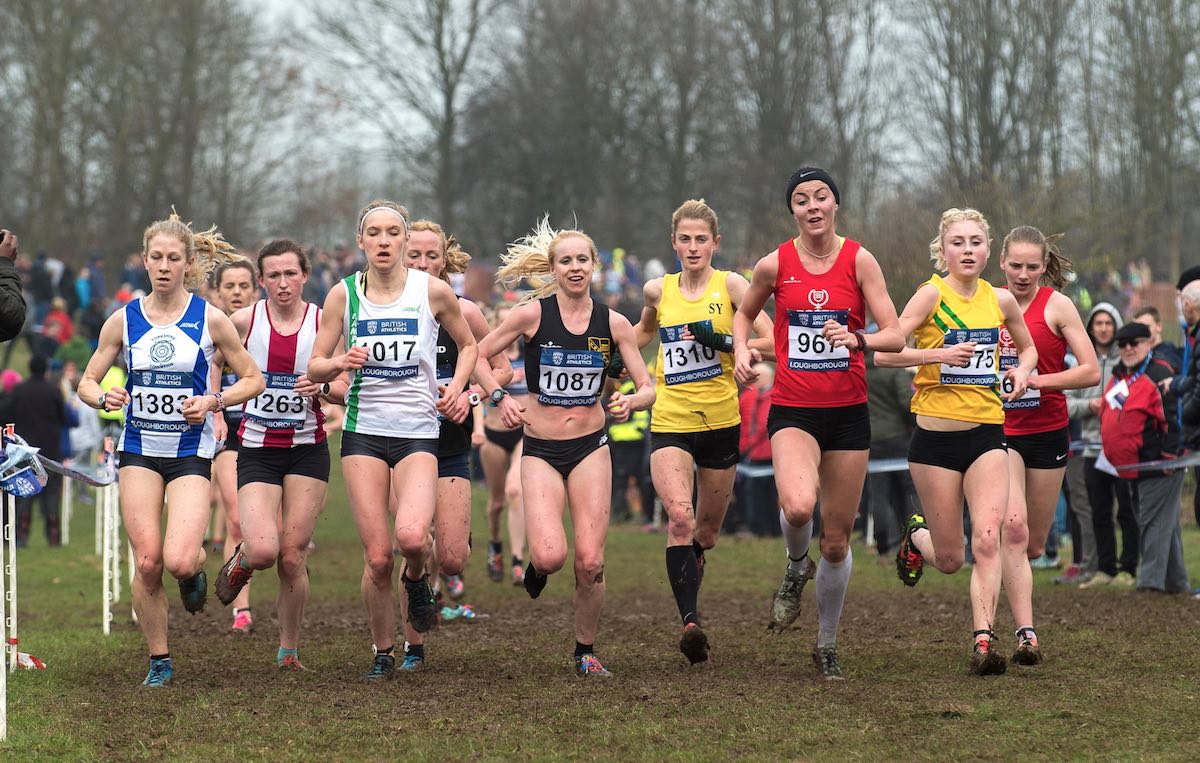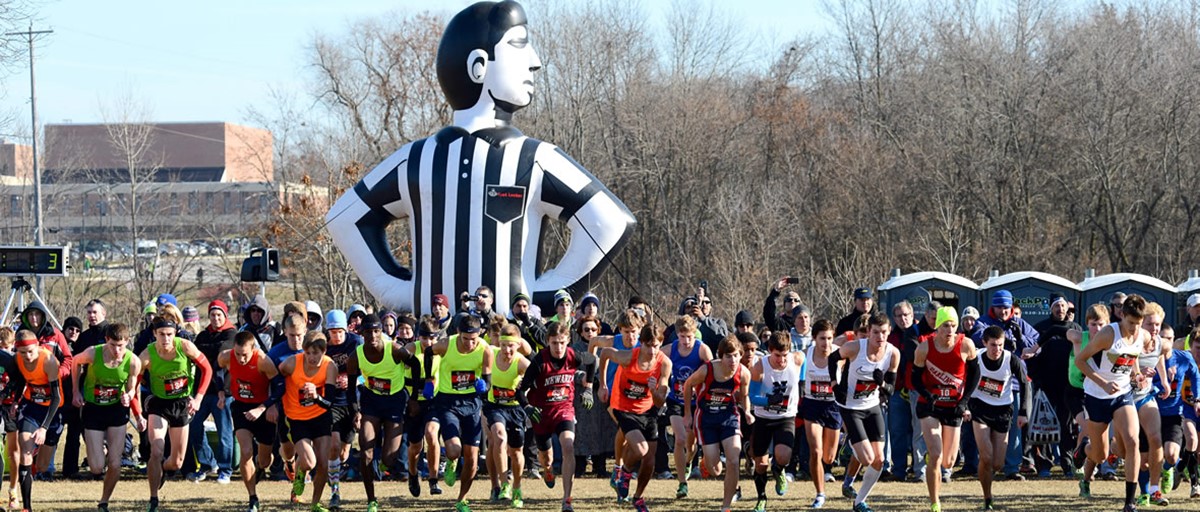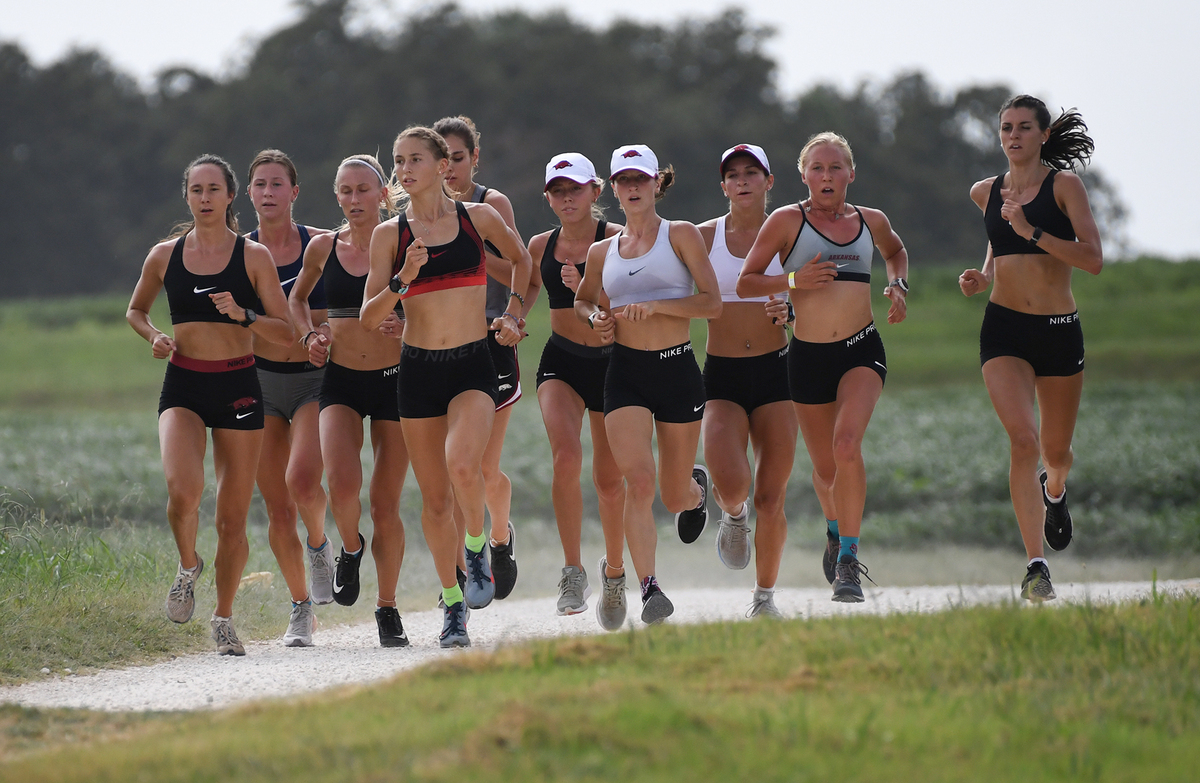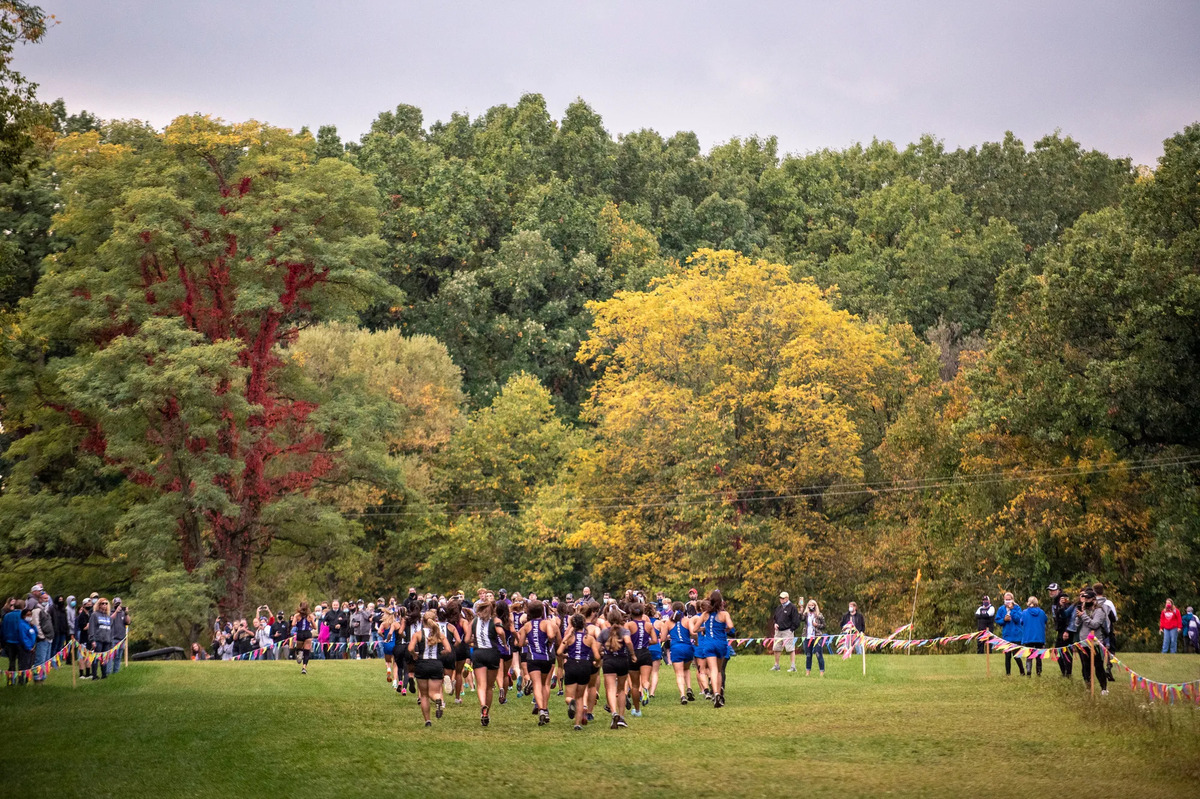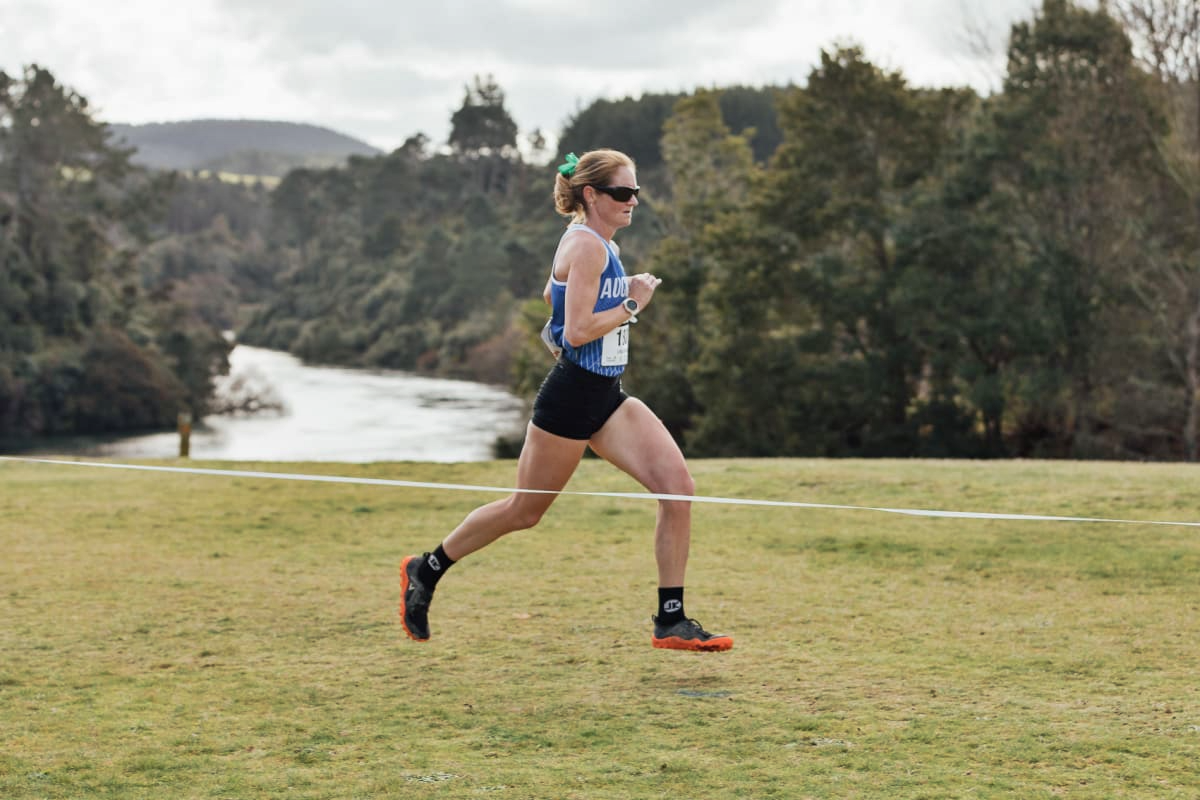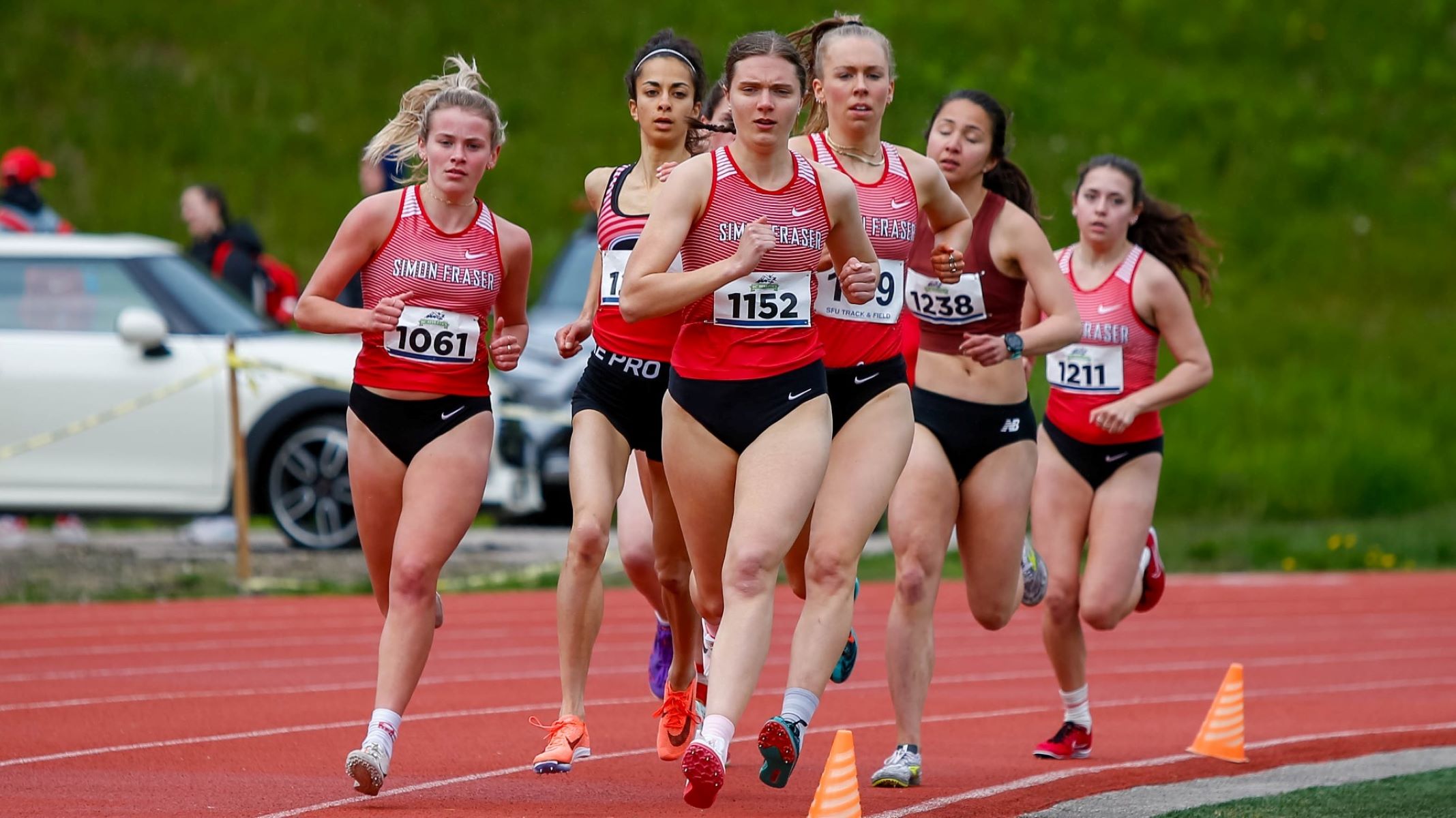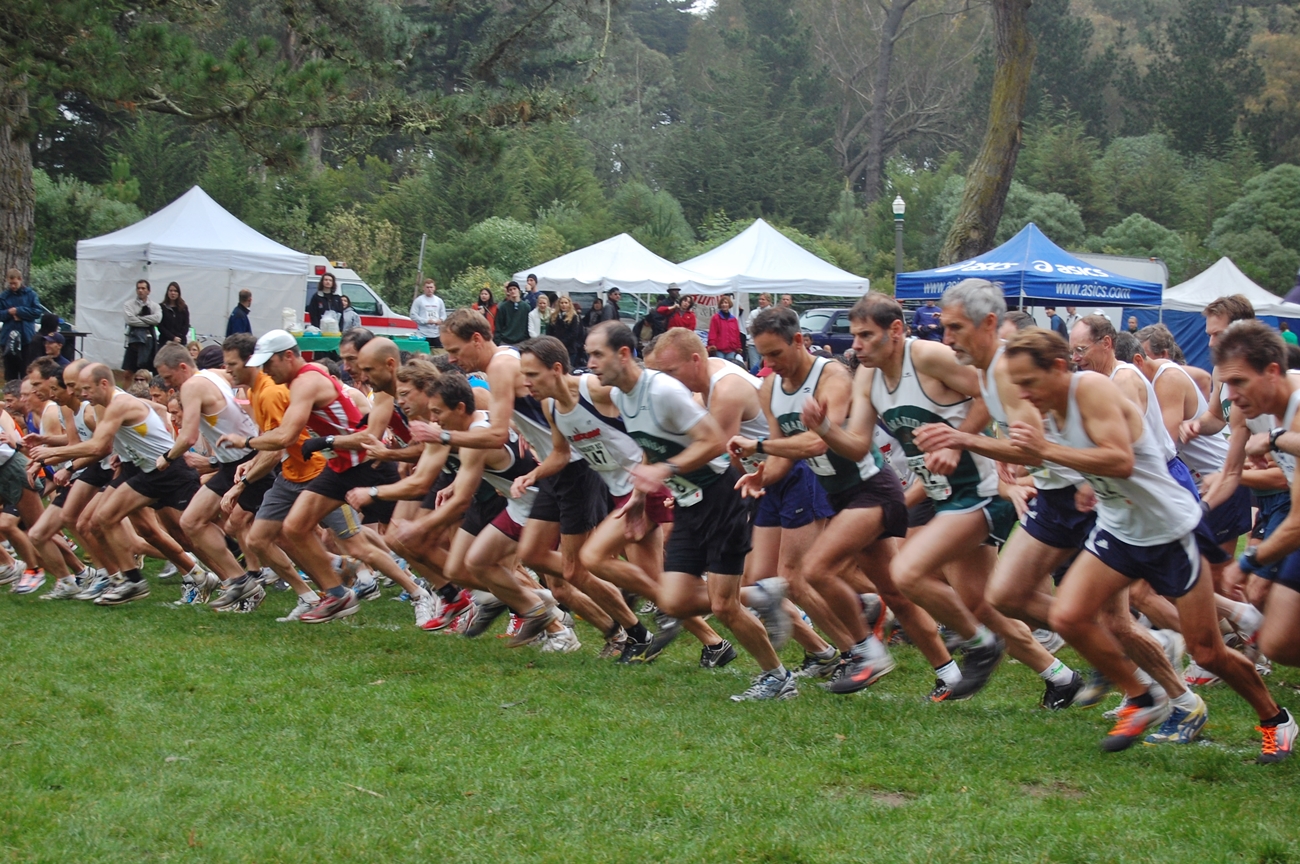Home>Misc>Featured>How Far Does Cross Country Run In College
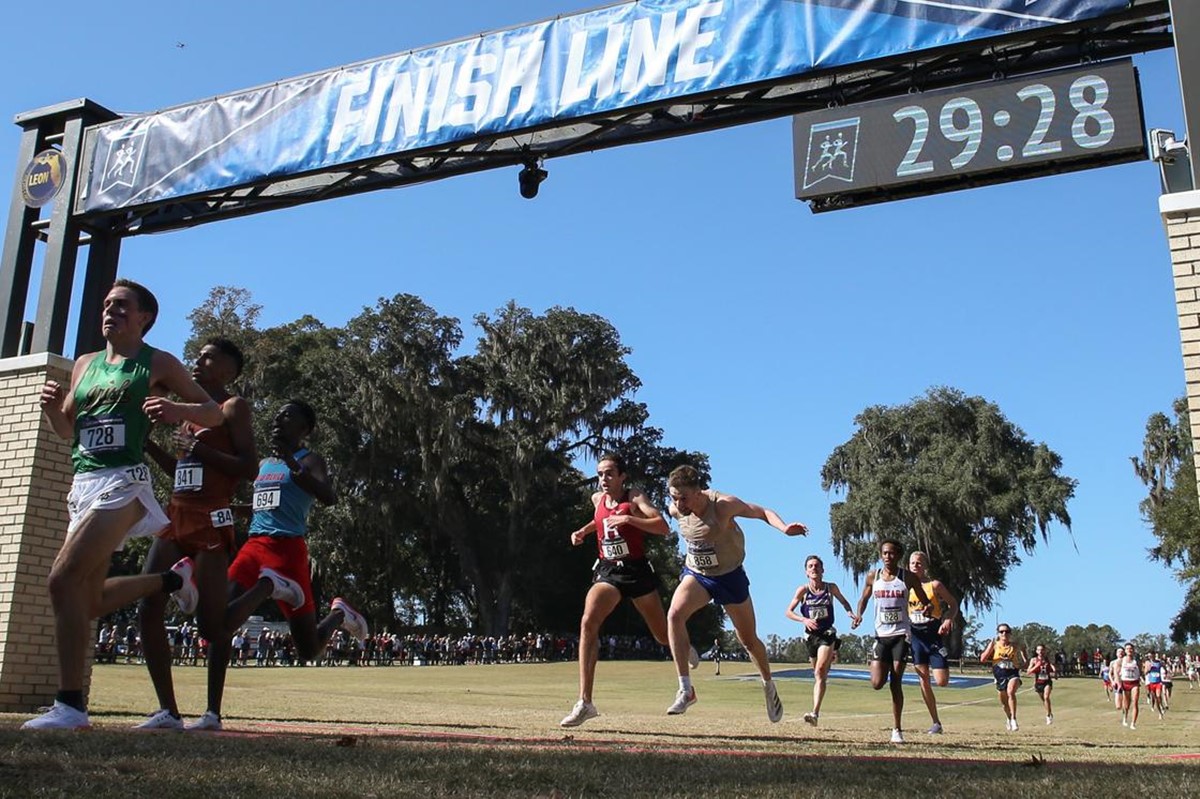

Featured
How Far Does Cross Country Run In College
Modified: January 22, 2024
Looking to see how far cross country runners go in college? Discover the featured distance of cross country runs at the collegiate level in this informative guide.
Introduction
Cross country running is a popular sport in colleges across the United States, drawing in athletes who possess endurance, determination, and a love for distance running. It is a dynamic and challenging sport that requires athletes to navigate rugged terrains, varied weather conditions, and intense competition. College cross country gives athletes the opportunity to showcase their abilities on a larger stage, competing against other universities and colleges.
But how far do cross country runners actually run in college? To answer this question, it’s important to understand the history, significance, and regulations surrounding cross country in college athletics. This guide will provide an in-depth look at the world of college cross country, including the distances covered in races, the training programs offered, and the benefits of participating in this demanding sport.
College cross country has a rich history that dates back several decades. It has evolved from a sport primarily enjoyed by recreational runners to a highly competitive event in college athletics. Today, cross country teams consist of talented individuals who have honed their running skills through years of practice and dedication.
Participating in college cross country is not just about challenging oneself physically. It is also an opportunity for athletes to develop teamwork, discipline, and mental fortitude. College cross country teams foster a sense of camaraderie and support among teammates, creating a tight-knit community that pushes each other to achieve their best.
This article will delve into the specifics of college cross country, exploring the distances runners cover, the training programs available, the competitions they participate in, and the career opportunities that exist beyond college. Whether you’re a prospective college cross country runner, a current athlete, or simply curious about the sport, this article will provide valuable insights into the world of college cross country running.
History of Cross Country in College
The history of cross country in college can be traced back to the late 19th century when it first emerged as an organized sport. It was initially developed as a way to supplement track and field training during the off-season. However, it quickly gained popularity among college athletes who found enjoyment and challenge in long-distance running.
The first intercollegiate cross country race in the United States took place in 1878. It was a match between Harvard, Princeton, and Yale, marking the beginning of a long-standing tradition of collegiate cross country competition. The sport continued to grow steadily, with more colleges and universities forming their own teams and participating in meets and championships.
In the early years of college cross country, races were often held on difficult terrains, including open fields, farmland, and hilly areas. These challenging courses tested the endurance and agility of the runners, pushing them to their limits. As the sport gained momentum, cross country courses began to be standardized and regulated for fairness and safety.
During the 20th century, the National Collegiate Athletic Association (NCAA) started recognizing cross country as an official sport. The NCAA established rules and guidelines to govern cross country competition, ensuring fair play and fostering a competitive environment. This recognition elevated the status of college cross country, attracting more athletes and enhancing the level of competition.
Over the years, the sport has continued to evolve, adapting to advancements in athletic training and technology. Colleges and universities now have dedicated cross country programs with professional coaches and state-of-the-art facilities. Athletes have access to specialized training methods, nutrition plans, and injury prevention strategies, enabling them to reach their full potential.
Today, college cross country competitions are highly anticipated events that draw large crowds of supporters. Spectators gather to cheer on their favorite teams and witness the impressive displays of speed, endurance, and strategy. College cross country has become a platform for talented runners to showcase their abilities and pursue their passion for distance running at a competitive level.
The history of cross country in college is one of growth and development. From its humble beginnings as an off-season training activity, it has evolved into a respected and celebrated sport in the realm of college athletics. As we explore the significance and impact of college cross country, it becomes clear that this sport has a deep-rooted history that continues to shape the experiences of athletes and fans alike.
Importance of Cross Country in College Athletics
Cross country holds a significant place in the landscape of college athletics. It is a sport that develops not only physical fitness but also mental toughness, teamwork, and discipline. The importance of cross country in college athletics can be seen through various aspects that contribute to the overall growth and success of athletes and the athletic program as a whole.
First and foremost, cross country provides a platform for athletes to showcase their talent and compete against top runners from other colleges and universities. College cross country races are highly competitive, pushing athletes to continually strive for improvement and to reach their full potential. The intense nature of these races fosters a strong sense of determination and resilience among the athletes, characteristics that are transferable to other aspects of life.
Furthermore, cross country serves as a vital building block for other sports within the college athletic program. The endurance, speed, and mental fortitude that cross country cultivates are beneficial for athletes who participate in sports such as track and field, soccer, and basketball. Cross country runners develop exceptional cardiovascular fitness, muscular strength, and the ability to maintain focus during long-duration activities.
In addition to physical attributes, college cross country enhances athletes’ mental well-being. The sport requires mental toughness, as runners must overcome physical fatigue, adapt to varying terrains, and strategize during races. These mental challenges build resilience and develop the ability to navigate difficult situations, traits that are valuable in both athletics and life.
Teamwork is another fundamental aspect of college cross country. Although running is often seen as an individual sport, cross country runners compete as a team, with each runner’s performance contributing to the overall team score. The camaraderie and support within the team environment create a sense of belonging and unity among the athletes. They learn to rely on each other, motivate one another, and work towards a common goal.
Furthermore, college cross country plays a significant role in promoting a healthy and active lifestyle among college students. The sport encourages regular physical exercise, which has numerous benefits, including stress reduction, improved cardiovascular health, and increased stamina. In an era where sedentary lifestyles are becoming increasingly prevalent, college cross country serves as a beacon for promoting physical fitness and overall well-being.
The importance of cross country in college athletics extends beyond individual athletes. A successful cross country program can enhance the reputation and visibility of the college, attracting both talented athletes and passionate fans. This, in turn, contributes to a vibrant and competitive athletic community within the college, creating a sense of pride and spirit.
Overall, cross country holds immense importance in college athletics. It develops athletes physically, mentally, and emotionally, while also fostering a sense of teamwork and promoting a healthy lifestyle. College cross country plays a pivotal role in the growth and success of athletes, and its significance extends far beyond the running trails.
NCAA Regulations for Cross Country
The National Collegiate Athletic Association (NCAA) plays a crucial role in governing college sports, including cross country. The NCAA has established specific regulations and guidelines to ensure fairness, safety, and a level playing field for collegiate cross country athletes. These regulations cover various aspects of the sport, including eligibility requirements, competition rules, and athlete welfare.
One of the key aspects regulated by the NCAA is the eligibility of cross country athletes. To participate in NCAA competitions, athletes must meet certain academic and amateurism requirements. They must maintain a minimum GPA, progress towards their degree, and adhere to the principles of amateurism, which means they cannot receive payment for their athletic performance or endorse products or brands. These requirements ensure that athletes prioritize their academic progress while also maintaining their amateur status.
Additionally, NCAA regulations set guidelines for the number of competitions and seasons in which collegiate cross country athletes can participate. Athletes are limited to four seasons of eligibility, meaning they have four years to compete in cross country at the collegiate level. Each season has a specific number of competition opportunities, limiting the number of races a team or athlete can participate in. This regulation helps maintain a balanced schedule and prevents excessive physical strain on athletes.
The NCAA also provides guidelines for competition rules in cross country. These rules govern various aspects of races, including course distances, team scoring, and disqualification procedures. For example, in terms of course distances, men’s cross country races at the NCAA level are typically 8 kilometers (approximately 5 miles), while women’s races are typically 6 kilometers (approximately 3.7 miles). These standardized distances ensure consistency and fairness across competitions.
Team scoring is another important aspect regulated by the NCAA. In cross country, teams compete as a unit, with individual performances contributing to the overall team score. NCAA regulations establish the scoring system, which typically awards points based on the finishing positions of the team’s top runners. The team with the lowest score wins the competition. This scoring system encourages teamwork and emphasizes the collective performance of the team rather than just individual success.
Furthermore, the NCAA places a strong emphasis on the welfare and safety of cross country athletes. It has established guidelines for training, medical care, and athlete support services. Athletes have access to qualified trainers, sports medicine professionals, and academic advisors who assist in their overall development and well-being. This comprehensive support system ensures that athletes have the necessary resources to succeed both on and off the cross country course.
By establishing and enforcing these regulations, the NCAA ensures that collegiate cross country maintains a fair and competitive environment. The regulations protect the interests of athletes, promote academic success, and facilitate the growth and development of the sport. Collegiate cross country athletes can participate in a well-regulated and structured system, allowing them to pursue their athletic aspirations while receiving a quality education.
College Cross Country Training Programs
College cross country training programs are designed to help athletes prepare physically and mentally for the challenging demands of the sport. These programs are comprehensive and tailored to the needs of individual athletes, focusing on developing endurance, speed, strength, and race strategy.
Training programs typically include a mix of running workouts, strength training, conditioning exercises, and recovery sessions. Long-distance runs are a fundamental component of cross country training, as they build aerobic endurance and improve overall stamina. These runs often involve covering substantial distances at a steady pace, gradually increasing both speed and distance as athletes progress in their training.
In addition to long-distance runs, interval training plays a crucial role in cross country training programs. Interval training involves alternating between high-intensity efforts and periods of active recovery. This type of training helps athletes improve their speed, anaerobic capacity, and race pace. Interval workouts may include shorter, intense bursts of running followed by rest or slower jogging.
Strength training is another integral part of college cross country training programs. These workouts focus on building lower body strength, core stability, and overall muscular endurance. Exercises such as squats, lunges, planks, and plyometric exercises help improve power, stability, and injury prevention. Strength training not only enhances performance but also contributes to overall body balance and resilience.
College cross country training programs also prioritize race-specific training. Athletes engage in workouts that mirror the demands of cross country races, such as running on varying terrain, practicing hill repeats, and incorporating race-specific intervals. This type of training helps athletes develop the ability to adapt to different course conditions and strategize their approach to races more effectively.
To achieve optimal performance, college cross country training programs emphasize the importance of recovery and rest. Adequate rest and recovery allow the body to repair and adapt to the stresses of training. Recovery sessions may involve easy runs, swimming, foam rolling, stretching, and adequate sleep. Coaches and trainers also provide guidance on proper nutrition, hydration, and injury prevention techniques to ensure athletes stay healthy and perform at their best.
College cross country training programs are not solely focused on physical development. They also incorporate mental training to help athletes develop mental fortitude, focus, and resilience. Athletes learn techniques such as visualization, goal setting, positive self-talk, and mental imagery to enhance their mental performance during races.
Overall, college cross country training programs are comprehensive and multidimensional, encompassing all aspects of distance running. They are designed to help athletes build endurance, speed, strength, resilience, and race-specific skills. These programs not only prepare athletes for the demands of cross country racing but also instill discipline, teamwork, and a strong work ethic that can be carried forward into other aspects of life.
College Cross Country Competitions
College cross country competitions are exhilarating events that showcase the skill, determination, and teamwork of athletes. These competitions provide a platform for cross country runners to test their abilities against athletes from other colleges and universities, pushing themselves to new limits and striving for victory.
There are several types of cross country competitions that college athletes participate in. One of the most common is the regular season dual or triangular meets, where teams compete head-to-head against one or two other schools. These meets are typically held on smaller, local courses and serve as opportunities for teams to assess their performance and gauge their progress.
The highlight of the college cross country season is often the invitational races. These meets attract a large number of schools from various regions, resulting in highly competitive races. Invitational meets often feature larger, more challenging courses and draw high-level competition, providing an opportunity for cross country runners to showcase their skills on a broader stage.
Conference championships are another significant part of the college cross country calendar. Each conference within the NCAA holds its own championship meet, where teams from the same conference compete against one another. These championships are fiercely contested, as they determine conference rankings and serve as a gateway to regional and national competitions. Conference championships create an atmosphere of intense competition and school pride, with teams aiming to claim the coveted conference title.
Regional championships follow conference championships, where cross country teams from different conferences within a specific region compete for a limited number of spots in the NCAA National Championships. These regional meets are highly competitive, with the top teams and individuals advancing to the national stage.
The pinnacle of college cross country competition is the NCAA National Championships. This event brings together the best cross country runners from colleges and universities across the country, culminating in a highly anticipated race that determines the national champions. The NCAA National Championships are a culmination of months of dedicated training, intense competition, and the relentless pursuit of excellence in cross country.
College cross country competitions not only showcase the individual talents of athletes but also emphasize the importance of team performance. In addition to individual awards, team scores are tallied based on the finishes of the team’s top runners. This team dynamic creates a sense of camaraderie and fosters a collaborative mindset among cross country athletes.
The atmosphere at college cross country competitions is electric, with cheering crowds and an undeniable sense of excitement. Spectators, including fellow athletes, coaches, family, and friends, line the course to support and encourage the runners. This energetic environment contributes to the overall experience and fuels the determination of the athletes.
College cross country competitions offer athletes the opportunity to compete against top-tier runners, showcase their skills, and strive for personal and team achievements. These events not only test physical abilities but also build character, resilience, and the drive to continually improve. College cross country competitions epitomize the beauty and essence of athletics, where dedication, perseverance, and the pursuit of excellence converge on the cross country course.
Challenges Faced by College Cross Country Runners
College cross country runners face a unique set of challenges that go beyond the physical demands of the sport. While the sport itself is already arduous and demanding, athletes must navigate various obstacles and overcome mental and logistical hurdles throughout their collegiate cross country journey.
One of the primary challenges faced by college cross country runners is the rigorous training schedule. Balancing demanding coursework, extracurricular activities, and social commitments with the training requirements of cross country can be overwhelming. Athletes often have early morning or late afternoon practices, leaving limited time for rest and recovery. This demanding schedule requires exceptional time management skills and a high level of discipline.
The competitive nature of college cross country also presents a significant challenge to athletes. The level of competition at the collegiate level is intense, with runners competing against some of the best in the country. Athletes must constantly strive to improve their performance, set personal records, and surpass their competitors, pushing themselves beyond their limits.
The physical toll of training and competing in cross country can also be daunting. Long-distance running places significant strain on the body, increasing the risk of overuse injuries such as shin splints, stress fractures, and tendonitis. Athletes must prioritize injury prevention by following proper training techniques, implementing recovery strategies, and listening to their bodies to avoid setbacks and maximize performance.
In addition to the physical challenges, the mental aspect of cross country can be equally demanding. The sport requires mental toughness and resilience, as athletes push through physical fatigue and mental barriers during races. Cross country runners must develop strategies to deal with negative thoughts, stay focused, and maintain a competitive mindset throughout the race.
Furthermore, the nature of cross country courses adds an additional challenge. The terrain can vary greatly, from flat grass fields to hilly trails, and even muddy or slippery surfaces. Athletes must adapt to different course conditions and strategize their approach to races accordingly. This requires excellent spatial awareness, adaptability, and the ability to make split-second decisions during the race.
College cross country runners often face challenges related to team dynamics. While cross country is often seen as an individual sport, collegiate runners compete as part of a team, with their individual performances contributing to the overall team score. Balancing personal goals and ambitions with the needs of the team can be a delicate balance. Athletes must work together, support one another, and prioritize teamwork over individual accomplishments.
Logistical challenges also come into play when participating in college cross country. Traveling to different competition venues, managing equipment, and dealing with weather conditions can all present logistical hurdles. Athletes must adapt to new environments quickly and adjust their routines to ensure optimal performance.
Despite the challenges, college cross country runners continue to strive for success, displaying resilience, determination, and passion for the sport. They embrace these challenges as opportunities for growth, pushing themselves to become better athletes and developing valuable life skills that extend beyond the cross country course.
Benefits of Participating in College Cross Country
Participating in college cross country offers numerous benefits, both on and off the racecourse. Beyond the physical fitness and athletic development, college cross country provides athletes with valuable life skills, personal growth, and a sense of belonging. Here are some of the key benefits of participating in college cross country:
Physical Fitness: College cross country is a physically demanding sport that builds cardiovascular endurance, muscular strength, and overall fitness. Athletes develop exceptional stamina, agility, and speed through regular training and competition.
Discipline and Time Management: College cross country requires athletes to balance intense training schedules with academic coursework and other commitments. Athletes learn time management, discipline, and the importance of prioritizing tasks to succeed both in athletics and academics.
Mental Toughness: Cross country builds mental fortitude and resilience. Athletes learn to push past physical fatigue, overcome mental barriers, and stay focused during races. The sport challenges athletes to develop strategies to manage negative thoughts and maintain a competitive mindset.
Teamwork and Camaraderie: Although cross country is an individual sport, collegiate runners compete as a team. Athletes develop strong bonds with their teammates, supporting and motivating each other. This sense of camaraderie fosters teamwork and creates a tight-knit community within the cross country program.
Goal Setting and Achievement: College cross country provides athletes with the opportunity to set and achieve personal goals. Athletes strive to improve their performance, beat personal records, and contribute to the success of the team. The sense of achievement and satisfaction derived from reaching these goals is invaluable.
Time in Nature: Cross country takes athletes outside, allowing them to train and compete in beautiful natural settings. Running on trails, through forests, or across picturesque landscapes provides a refreshing and soothing experience, enhancing the mental and emotional well-being of athletes.
Leadership and Responsibility: College cross country offers opportunities for athletes to assume leadership roles within the team. Captains and upperclassmen often guide and mentor younger teammates, fostering leadership skills and a sense of responsibility towards the team.
Networking and Connections: College cross country competitions bring athletes together from various colleges and universities. These events provide opportunities to connect with and learn from athletes, coaches, and officials from other institutions. Building a network in the cross country community can be valuable for future career opportunities.
Character Development: College cross country builds character traits such as perseverance, resilience, determination, and self-discipline. Athletes learn to overcome challenges, adapt to varying conditions, and push themselves to achieve their personal best.
Life Skills: The skills and qualities developed in college cross country, such as time management, goal setting, teamwork, and resilience, are transferable to all aspects of life. These skills provide a solid foundation for future personal and professional success.
Participating in college cross country goes beyond the sport itself. It offers a holistic experience that contributes to physical, mental, and personal growth. Athletes develop essential life skills, form lifelong friendships, and cultivate a lifelong love for running. The benefits of participating in college cross country extend far beyond the finish line and create a lasting impact on athletes’ lives.
Scholarships for College Cross Country Runners
College cross country runners have the opportunity to receive scholarships that can help ease the financial burden of attending college. Scholarships for cross country athletes are awarded based on their athletic ability, achievements, and potential contribution to the college’s cross country program. These scholarships recognize and support the dedication and talent of student-athletes, allowing them to pursue their academic and athletic goals simultaneously.
Colleges and universities offer various types of scholarships for cross country athletes. Here are a few common scholarship options available:
Athletic Scholarships: Many colleges and universities offer athletic scholarships specifically for cross country athletes. These scholarships are typically awarded to exceptional runners who have demonstrated outstanding performance in high school or during their running career. Athletic scholarships may cover full or partial tuition, fees, and sometimes additional benefits such as housing and textbooks.
Academic Scholarships: Some colleges and universities award scholarships based on academic achievements in combination with cross country participation. These scholarships recognize the athlete’s success in the classroom and on the racecourse. Academic scholarships may have varying eligibility criteria, including GPA, standardized test scores, and class rank.
Combined Scholarships: Certain institutions offer scholarships that combine both athletic and academic criteria. These scholarships take into consideration the athlete’s performance and potential as a cross country runner as well as their academic achievements. Combined scholarships can provide significant financial assistance to student-athletes who excel both athletically and academically.
Divisional Scholarships: Scholarships for college cross country runners vary based on the division of the athletic program. Division I schools, which typically have larger athletic programs, often provide more substantial scholarships, including full rides or significant financial aid packages. Division II and III schools also offer scholarships, although they may be more focused on academic merit and need-based aid, with athletic contributions taken into consideration.
Recruiting Scholarships: Scholarships can also be awarded to highly sought-after athletes who have been actively recruited by colleges and universities. Coaches identify talented runners during the recruiting process and may offer scholarships to attract them to their cross country program. This type of scholarship acknowledges the athlete’s potential to enhance the team’s performance and contribute to the overall success of the program.
Renewable Scholarships: It’s important to note that many athletic scholarships are renewable annually. Student-athletes must meet specific performance and academic benchmarks to maintain their scholarship throughout their college career. This requirement encourages athletes to continue their hard work and dedication, both on the cross country course and in the classroom.
Receiving a cross country scholarship not only provides financial assistance but also offers recognition for the athlete’s talent, dedication, and hard work. These scholarships enable student-athletes to pursue their academic and athletic goals simultaneously, allowing them to focus on their studies and compete at a high level in cross country.
It’s essential for prospective college cross country runners to actively pursue scholarship opportunities by reaching out to college coaches, attending recruitment events, and showcasing their abilities to maximize their chances of receiving a scholarship. Scholarship opportunities vary by college and university, and it’s recommended that athletes research and engage with the schools that align with their academic and athletic aspirations.
Overall, scholarships for college cross country runners provide much-needed financial support and recognition for athletes who excel in the sport. These scholarships create opportunities for student-athletes to pursue their education while continuing to develop their skills and passion for cross country at the collegiate level.
Career Opportunities in Cross Country after College
For college cross country runners, the sport does not have to end after their collegiate career. There are various career opportunities available in cross country for those who wish to continue their involvement in the sport. These opportunities range from coaching and training to sports administration and professional running. Here are some potential career paths for cross country athletes after college:
Coaching: Many former cross country runners pursue careers in coaching. They can work at the high school, collegiate, or even professional level. Coaches have the opportunity to guide and mentor younger athletes, sharing their knowledge and experience to help them reach their potential. Coaching positions may also involve designing training programs, organizing competitions, and fostering a positive team environment.
Athletic Training and Sports Medicine: Cross country runners often have firsthand experience with injuries and the recovery process. Some choose to pursue a career in athletic training or sports medicine, where they can work with athletes to prevent and treat injuries. These professionals provide rehabilitation services, design injury prevention programs, and collaborate with coaches and medical staff to ensure the well-being of athletes.
Sports Administration: Those with a passion for the administrative side of athletics can explore careers in sports administration. This can include roles such as athletic director, sports marketing, event management, or sports information director. Sports administrators work behind the scenes to organize events, manage team operations, develop marketing strategies, and ensure the smooth functioning of athletic programs.
Professional Running: For outstanding runners, pursuing a career in professional running is an option. Professional runners compete in local, national, and international races, representing sponsors and earning income through prize money, sponsorship deals, and endorsements. Professional runners often train full-time and dedicate their energy to improving their performance, chasing records, and competing at the highest level of the sport.
Fitness and Personal Training: Former college cross country runners can become certified fitness trainers or personal trainers. They can help individuals of all fitness levels achieve their health and wellness goals, develop personalized training plans, and provide guidance on nutrition and exercise. Fitness and personal training careers offer the flexibility to work in gyms, health clubs, or as entrepreneurs operating their own training businesses.
Running Specialty Industry: The running specialty industry provides opportunities for cross country runners to work in running stores, race organizations, or running gear companies. These individuals can offer expertise in shoe fitting, product knowledge, event management, and marketing within the running and athletic community.
Corporate Wellness Programs: Many companies prioritize employee wellness programs, including running clubs and fitness initiatives. Former cross country runners can leverage their knowledge and passion for running in corporate wellness roles. They can lead running groups, design training programs, and promote physical activity within the workplace.
Physical Education and Teaching: Some cross country athletes choose to pursue careers in physical education or teaching. They can become physical education teachers, providing instruction and guidance to young students in various sports, including cross country. Additionally, they can become coaches within their school and community, promoting physical fitness and instilling a love for running in the next generation.
These are just a few examples of the career opportunities available in cross country after college. The passion, knowledge, and dedication developed through a collegiate cross country career can be applied to a variety of roles within the running community, athletics, and related industries. Whether it’s coaching, sports medicine, administration, professional running, or other avenues, former cross country runners can continue to make meaningful contributions to the sport and inspire others through their experience and expertise.
Conclusion
College cross country offers a unique and fulfilling experience for athletes. From its rich history to the challenges and benefits it presents, participating in college cross country provides a platform for personal growth, physical development, and the cultivation of lifelong skills. Athletes who embark on their college cross country journey not only compete in exhilarating races but also immerse themselves in a supportive team environment that nurtures their love for running and pushes them to achieve their best.
The history of cross country in college showcases the evolution of the sport and its significance within college athletics. From its humble beginnings to its recognition and regulation by the NCAA, cross country has grown into an exciting and competitive sport that captivates athletes and fans alike.
The importance of cross country in college athletics becomes evident through the various benefits it offers to athletes. From physical fitness and mental toughness to teamwork and time management skills, collegiate cross country builds character and prepares athletes for success in all aspects of life.
The regulations set by the NCAA ensure fair play, safety, and a level playing field for cross country athletes. These regulations create a structured and competitive environment and provide support systems necessary for athletes’ well-being.
Training programs in college cross country are comprehensive and focused on developing the endurance, speed, strength, and race strategy required for success. Athletes receive guidance from professional coaches, access to top-notch facilities, and a supportive team environment that encourages growth and improvement.
College cross country competitions encompass a range of events, from regular season meets to conference championships and national competitions. These events test athletes’ skills, showcase their talent, and create a vibrant and supportive atmosphere that fosters friendships and camaraderie.
While college cross country presents its fair share of challenges, such as balancing academics and training, facing strong competition, and overcoming physical and mental barriers, it also offers countless rewards. The lifelong friendships, personal growth, and pride derived from achieving individual and team goals make the challenges worthwhile.
Scholarships for college cross country runners provide financial aid and recognition for their dedication and talent. These scholarships allow athletes to pursue their education while contributing to their cross country program, easing the financial burden and opening doors for future opportunities.
After college, cross country athletes have a range of career opportunities available to them. Coaching, sports administration, professional running, and careers in sports medicine and fitness are just a few examples of the paths that former cross country runners can pursue.
In conclusion, college cross country is a journey filled with determination, perseverance, and personal growth. It offers athletes the opportunity to excel both academically and athletically, develop lifelong skills, and make lasting connections within the running community. Whether athletes continue their involvement in the sport beyond college or transition into other fields, the lessons learned and experiences gained from college cross country will shape and enrich their lives for years to come.
